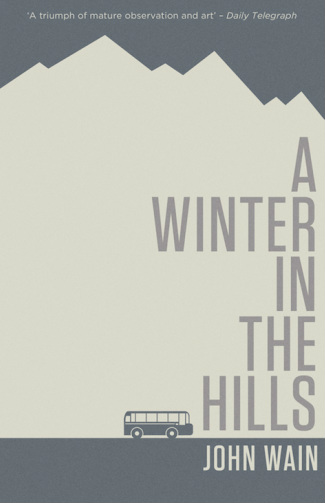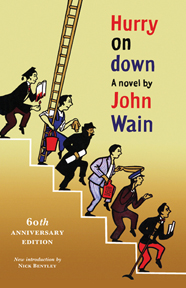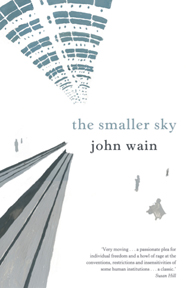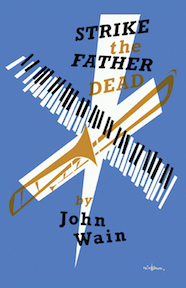|
A Winter in the Hills (1970)
John Wain With a new foreword by Will Wain Book Description
Roger Furnivall is a forty-year-old philologist with no money and no sex life. But he thinks he’s found a way to solve both problems: a cushy university post in Sweden pays well and promises access to plenty of beautiful blondes. There’s just one catch: the job requires a knowledge of Welsh. Taking a sabbatical in North Wales to learn the language, Roger expects a long and dreary winter of linguistic study, but instead quickly finds himself drawn into the drama of local affairs. A large corporation seeking a monopoly has squeezed every bus operator out of business but one: taciturn hunchback Gareth Jones is the lone holdout. Seeing in this one man’s struggle for survival against the faceless forces of corporate greed a problem more important than any he has ever faced, Roger is moved to help. But when the company’s hired thugs begin to make attempts on his life, Roger discovers that his winter in the hills may end up being much more than he had bargained for . . . John Wain (1925-1994) catapulted to fame with Hurry on Down (1953), the defining novel of what the media called the ‘Angry Young Men’ movement, but it was in his later novels, in which he explored the unresolved place of the individual in a world of social change driven by abstract and impersonal economics, that he was at his best. This edition of A Winter in the Hills (1970), one of his finest novels, includes a new foreword by Will Wain. |
reviews
‘[A] triumph of mature observation and art.’ – Daily Telegraph
‘A winter’s tale of light and laughter.’ – Sunday Times
‘What is especially enjoyable is the rough-edged tenderness and kindness of Mr Wain’s concern . . . probably his most substantial achievement to date.’ – Robert Nye, Saturday Times Review
‘[S]ubstantial and serious . . . sustains a vigorous narrative line—he has always been an excellent storyteller.’ – Times Literary Supplement
‘[A] love affair between its author and North Wales itself. . . . It is a novel with its heart in the right place, and it knows where the right place is.’ – The Observer
‘Clever and entertaining.’ – The Guardian
‘A winter’s tale of light and laughter.’ – Sunday Times
‘What is especially enjoyable is the rough-edged tenderness and kindness of Mr Wain’s concern . . . probably his most substantial achievement to date.’ – Robert Nye, Saturday Times Review
‘[S]ubstantial and serious . . . sustains a vigorous narrative line—he has always been an excellent storyteller.’ – Times Literary Supplement
‘[A] love affair between its author and North Wales itself. . . . It is a novel with its heart in the right place, and it knows where the right place is.’ – The Observer
‘Clever and entertaining.’ – The Guardian
BOOK DETAILS
Trade paper
ISBN-13: 978-1941147016
List Price: $22.99 U.S.
Pages: 414
Published: 2014
Trade paper
ISBN-13: 978-1941147016
List Price: $22.99 U.S.
Pages: 414
Published: 2014
ALSO AVAILABLE THROUGH ONLINE RETAILERS
MORE TITLES BY THIS AUTHOR
AUTHOR BIOGRAPHY
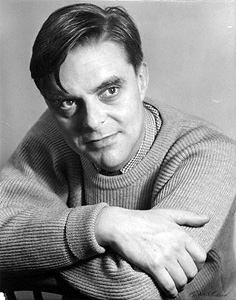
John Wain was born in 1925 in Stoke-on-Trent, Staffordshire. He attended St John’s College, Oxford, earning a BA in 1946 and an MA in 1950. A prolific author and man of letters, Wain wrote poetry, novels, criticism, and biographies during a writing career that spanned more than forty years.
He started out teaching at the University of Reading, but in 1953 left to pursue writing full-time. Wain’s first novel, Hurry on Down (1953; published in the United States as Born in Captivity) was a bestseller and launched Wain’s career as a novelist. The book ran into several hardcover printings and was often reprinted as a Penguin paperback; it is credited with paving the way for later British classics of the 1950s, including Kingsley Amis’s Lucky Jim (1954) and John Braine’s Room at the Top (1957). Wain followed his first novel with a number of other novels and short story collections, including Living in the Present (1955), The Contenders (1958), A Travelling Woman (1959), Strike the Father Dead (1962), The Young Visitors (1965), Nuncle, and Other Stories (1965), and Death of the Hind Legs and Other Stories (1966). A number of contemporary critics felt some of these works represented a falling-off from Wain’s successful debut novel, but his next novel, The Smaller Sky (1967), was well received, and is arguably Wain’s masterpiece. The Smaller Sky (forthcoming in a new edition from Valancourt Books) tells the story of a man overwhelmed by the stresses of his life, who seeks refuge beneath the ‘smaller sky’ of Paddington rail station. Among his later fiction, A Winter in the Hills (1970) and Young Shoulders (1982) were particularly well regarded; the latter novel won the Whitbread Award.
In 1973, Wain was appointed the first Professor of Poetry at Oxford University, and the following year his biography of Samuel Johnson won the James Tait Black Memorial Prize. His services to literature were recognized in 1984 when he was awarded a CBE. In the late 1980s, he began his ‘Oxford Trilogy’ with Where the Rivers Meet (1988), and the final volume, Hungry Generations, was published shortly after his death in 1994.
He started out teaching at the University of Reading, but in 1953 left to pursue writing full-time. Wain’s first novel, Hurry on Down (1953; published in the United States as Born in Captivity) was a bestseller and launched Wain’s career as a novelist. The book ran into several hardcover printings and was often reprinted as a Penguin paperback; it is credited with paving the way for later British classics of the 1950s, including Kingsley Amis’s Lucky Jim (1954) and John Braine’s Room at the Top (1957). Wain followed his first novel with a number of other novels and short story collections, including Living in the Present (1955), The Contenders (1958), A Travelling Woman (1959), Strike the Father Dead (1962), The Young Visitors (1965), Nuncle, and Other Stories (1965), and Death of the Hind Legs and Other Stories (1966). A number of contemporary critics felt some of these works represented a falling-off from Wain’s successful debut novel, but his next novel, The Smaller Sky (1967), was well received, and is arguably Wain’s masterpiece. The Smaller Sky (forthcoming in a new edition from Valancourt Books) tells the story of a man overwhelmed by the stresses of his life, who seeks refuge beneath the ‘smaller sky’ of Paddington rail station. Among his later fiction, A Winter in the Hills (1970) and Young Shoulders (1982) were particularly well regarded; the latter novel won the Whitbread Award.
In 1973, Wain was appointed the first Professor of Poetry at Oxford University, and the following year his biography of Samuel Johnson won the James Tait Black Memorial Prize. His services to literature were recognized in 1984 when he was awarded a CBE. In the late 1980s, he began his ‘Oxford Trilogy’ with Where the Rivers Meet (1988), and the final volume, Hungry Generations, was published shortly after his death in 1994.

